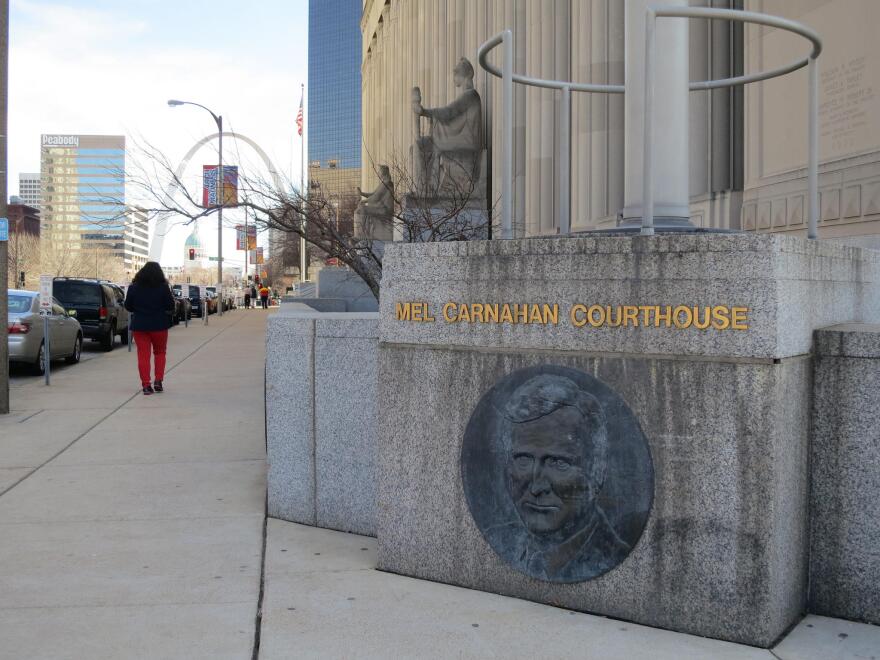You hear it nearly every time you watch a crime show. As the bad guy is getting cuffed by the police, they tell him that he has the right to remain silent. And "Anything you say can and will be used against you in a court of law." And then they tell him he has the right to an attorney. If he cannot afford to hire a lawyer, "one will be appointed to represent you..."
As with most things you see on TV, getting a publicly appointed lawyer is not actually that easy. In this episode of We Live Here, we explore the price and perils of our public defender system.
Let's start by looking at the TV version of justice. For one thing, TV doesn't show what public defenders do and how the difficulties within the criminal justice system that make their jobs — as well as police, prosecutors, social workers — difficult. You can read more about those stresses and attempts to alleviate them here.
A lot of that stress comes from funding and workloads.
Janise Lampley is an assistant public defender in the St. Louis County Office. She has worked in the county for about two years.
Even though her days are hectic, Lampley said loves her job because she thinks it's important that people have quality defense.

Another thing you won't see about the public defender system on TV, is how complex the qualifications are for getting a court-appointed attorney. That bit in the Miranda rights about being having an attorney appointed to you only applies if you are really poor. In Missouri being able to afford an attorney means you make more than 100 percent of the federal poverty guideline. For a single person, 100 percent of the poverty guideline is $11,770 a year.
Michael Barrett, director of the Missouri Public Defender Commission said the poverty standards, in part, keep workloads from growing.
“If you are a single mom with a child, you cannot make more than $15,930 a year. So, if you make $16,000 — and we all know how far that goes — you don’t qualify for our services," Barrett said. "We’re not happy with this standard but, as it is right now, we don’t have lawyers to represent clients that we do have. So that's why we imposed standards several years back."
If someone is denied a public defender, they can appeal to the court and they may end up with a public defender, but some don't. Barrett said that raises the question of what happens to these individuals.
"If they can't afford us, are they getting private counsel?" Barrett said. "Where are they getting $5,000 to $10,000 to put down a retainer to hire private counsel? And you have to think they cannot. So, what happens to these individual?"
While some people don't qualify for a public defender because of money, others don't qualify because of the type of crime they are accused of committing. Take Debara Jones for instance.
“I went in the court today and I was denied a public defender," she said. "And I didn't know that I was going to be denied of something that I didn't do. I’m not able to work. I’ve been on a cane for I can't count, I mean some years.”
Jones, who's in her 50s and walks with a cane, was denied not because she makes too much money, but because she's accused "only" of a misdemeanor. The judge at the 22nd District Court in St. Louis explained to Jones that, in Missouri, public defenders don't handle misdemeanors unless the defendant could end up serving time in jail or prison.
Jones is charged with property damage. She allegedly kicked in a door. If she's found guilty she would have to pay a fine. But Jones said she didn't commit the crime and she doesn't want to pay for something she said she didn't do.
If she's found guilty or ends up pleading out Jones won't just have to pay a fine. She'll also have a misdemeanor on her record, which comes with a whole set of consequences. We'll explore what those consequences can be in our next podcast.




